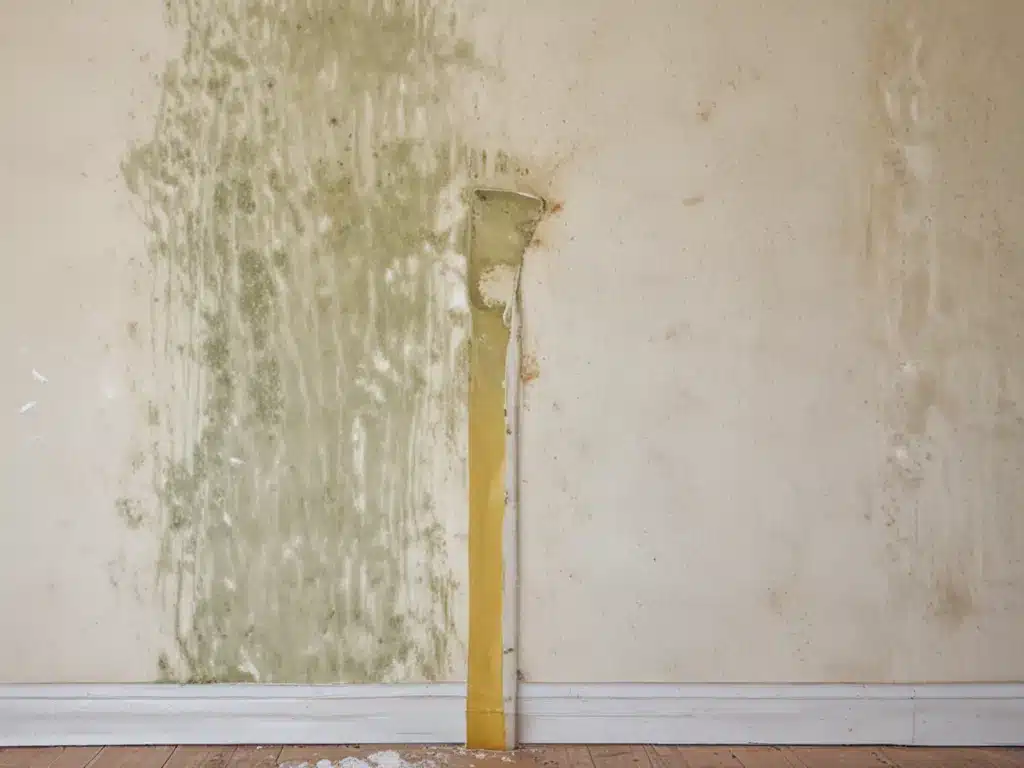What is Mold and Why is it Dangerous?
Mold is a type of fungus that grows in damp, warm environments. It produces spores that float through the air and can cause allergic reactions. Inhaling mold spores can trigger asthma attacks, runny nose, eye irritation, cough, congestion, and upper respiratory tract symptoms.
Mold also damages materials it grows on. Mold can feed on wood, paper, carpet, foods, and insulation. As it digests these materials, it destroys them by breaking down fibers and plant matter. Mold growth is a sign of excessive moisture, which provides the damp conditions that mold needs to thrive.
Some types of mold produce mycotoxins, which are toxic chemicals. Mycotoxins can cause headaches, fever, and respiratory problems if inhaled over long periods. Toxic black mold is especially dangerous. Exposure can suppress the immune system and even be fatal to small children or older adults.
Why Chemical Mold Removers are Harmful
Many commercial mold removal solutions contain harsh ingredients like bleach, ammonia, benzalkonium chloride, or formaldehyde. These chemicals are toxic to humans. They can cause eye and skin irritation, nausea, dizziness, and breathing problems.
Chemical fumes are also dangerous for pets. Ventilation is required when using chemical cleaners, but fumes often spread throughout the home. Residue left by chemical cleaners can mix with organic matter to create more toxins.
Another problem with chemical mold removers is that they do not address the source of moisture that allowed mold to grow in the first place. Killing surface mold with chemicals provides temporary results. Unless excess moisture is eliminated, the mold will soon grow back.
Effective Natural Methods to Remove and Prevent Mold
Fortunately, there are safe, non-toxic alternatives for mold removal. Natural methods create long-lasting results by fixing moisture issues and removing mold at the roots. Here are some of the best natural mold fighting techniques:
Dry Out Affected Areas
The first step is drying out damp areas. Dehumidifiers work well for drawing moisture out of rooms. Place dehumidifiers in affected areas and drain them regularly until humidity readings are below 50%.
Improving ventilation also decreases humidity. Open windows, run fans, and keep air circulating. Make sure bathroom and kitchen exhaust fans vent outside, not just back into the house.
Once moisture is under control, thoroughly clean all moldy surfaces. Scrub off visible mold with natural cleaners. Completely dry areas afterward.
Use Natural Mold Killing Solutions
For natural mold killing power, look for products with tea tree oil, clove oil, or peppermint oil. A 50/50 mixture of vinegar and water also kills mold effectively.
Spray homemade natural cleaners directly onto mold. Let them soak 5-10 minutes before scrubbing with a stiff brush. For carpet mold, mix baking soda and water into a paste and rub it in liberally.
Borax mold killer is another good option. Mix 1 cup borax with 1 gallon hot water and use it to scrub away mold. Wear gloves, mask, and goggles for protection when handling borax.
Stop Moisture Sources
Eliminating excess moisture prevents mold from returning. Fix any leaky roofs, plumbing, or appliances. Improve drainage and grading around the structure so ground water flows away from the foundation.
Use dehumidifiers, improve ventilation, and regularly check for hidden moisture in walls or ceilings. Monitoring humidity and being diligent about reducing dampness provides long-term mold prevention.
When to Consider Professional Mold Remediation
For severe mold situations, call in a mold remediation specialist. Professionals have powerful equipment to dry out materials and advanced methods for killing mold at the roots. They can evaluate if any materials are so damaged that removal is needed.
Get professional help for:
- Large areas of visible mold growth
- Musty odors spreading through the home
- Significant water damage or flooding
- Health issues potentially caused by mold
Remediation pros use specialized tools like vacuum systems, air scrubbers, truck-mounted drying equipment, and protective gear. They take proper steps to contain the mold so spores do not spread. Professional mold removal is worth the cost for long-lasting mold elimination.
Conclusion
Mold creates serious health hazards, so take action at the first sign of a problem. Avoid using dangerous chemical mold killers that only provide temporary relief. For the most effective and lasting results, employ natural mold fighting techniques. Remove excess moisture, kill mold with natural solutions, stop moisture sources, and consider professional help for serious cases. With diligence and safe methods, you can ditch mold and breathe easy again.







